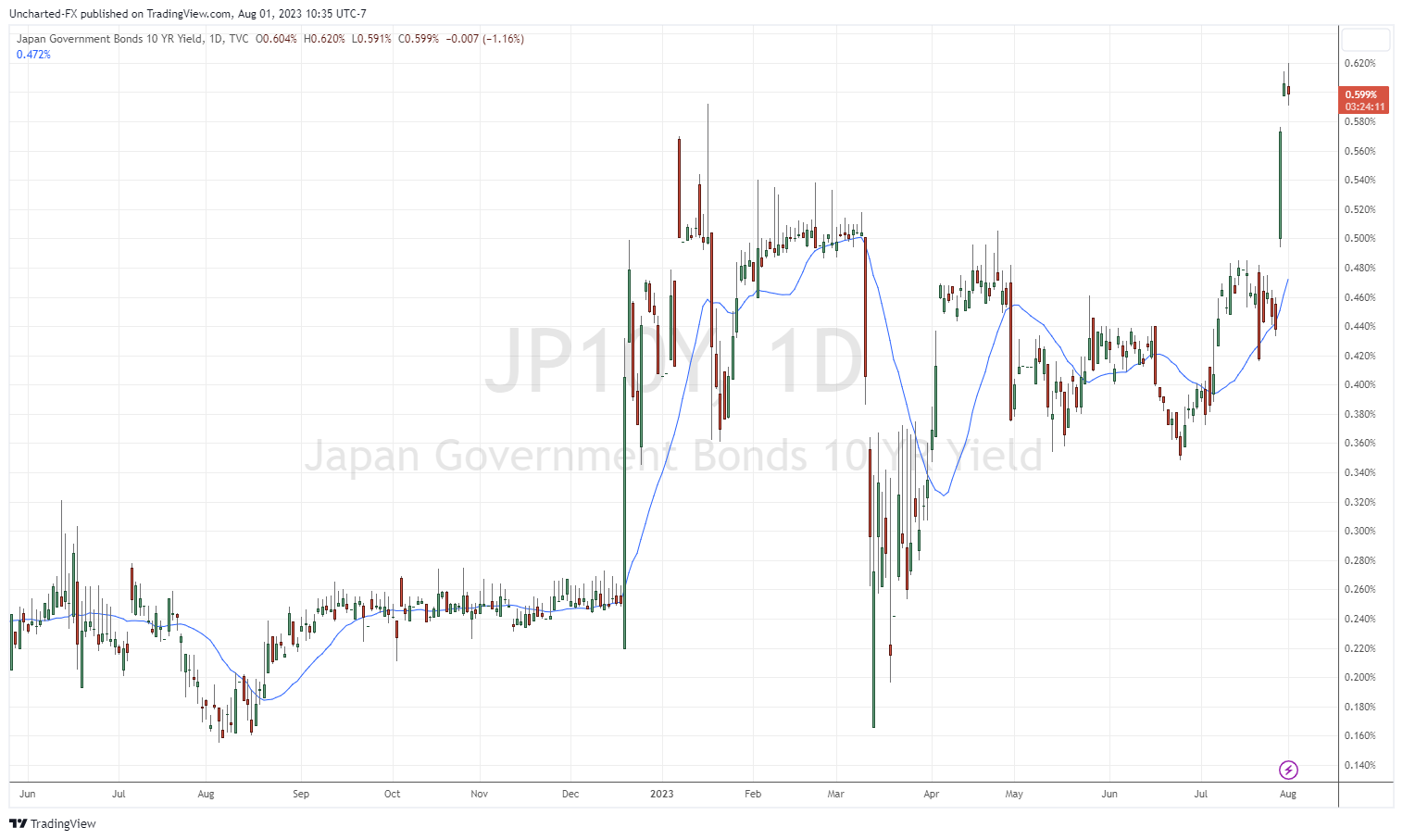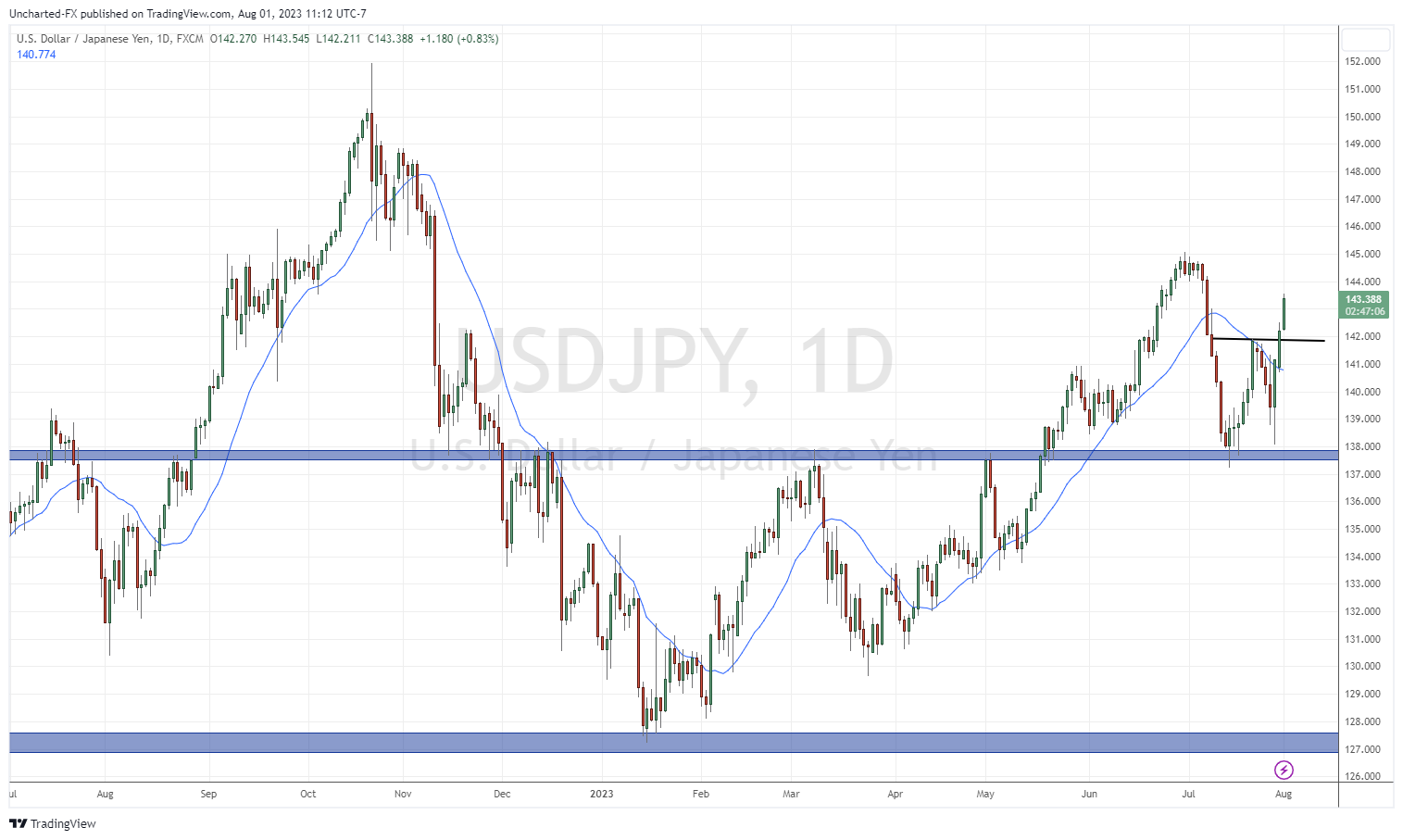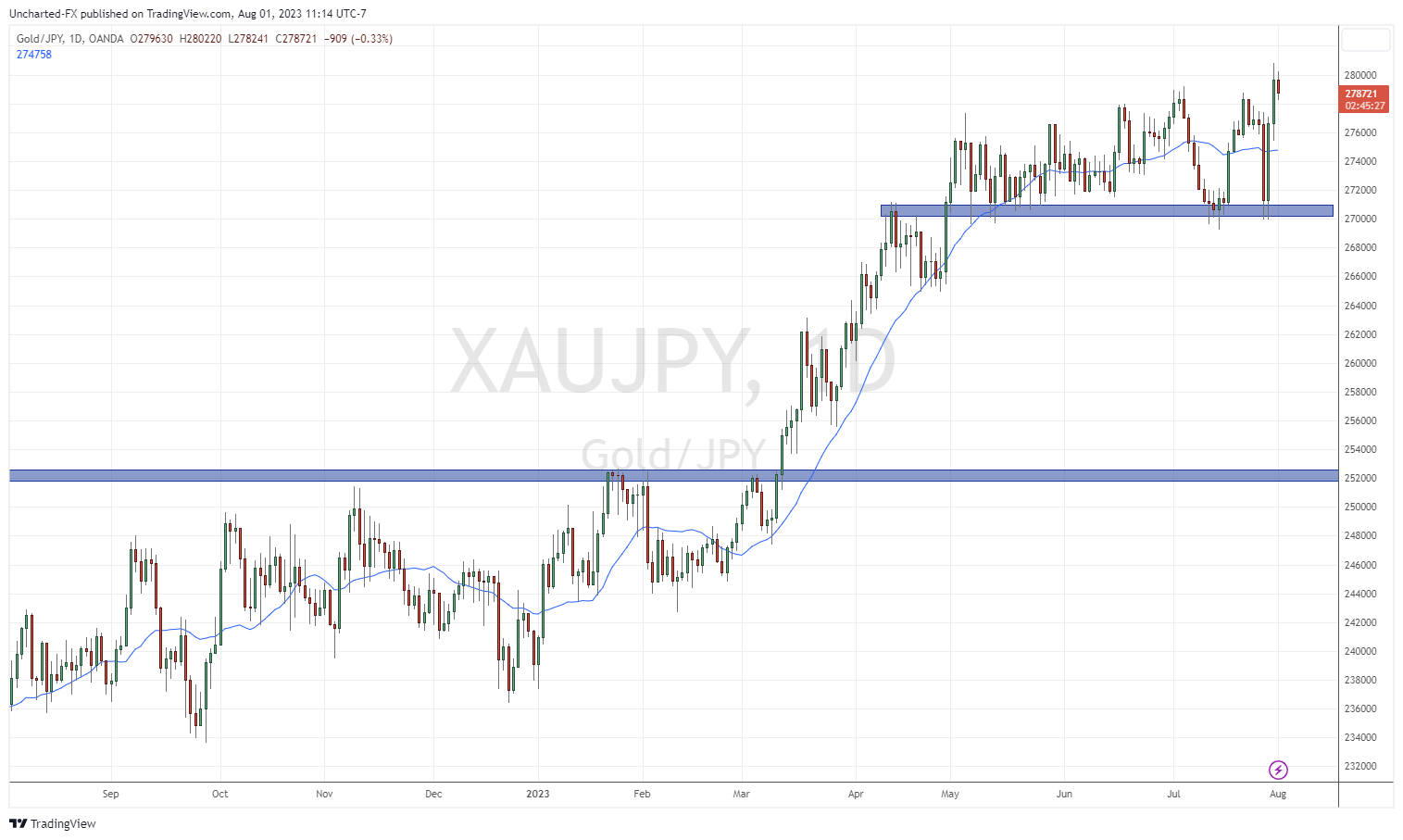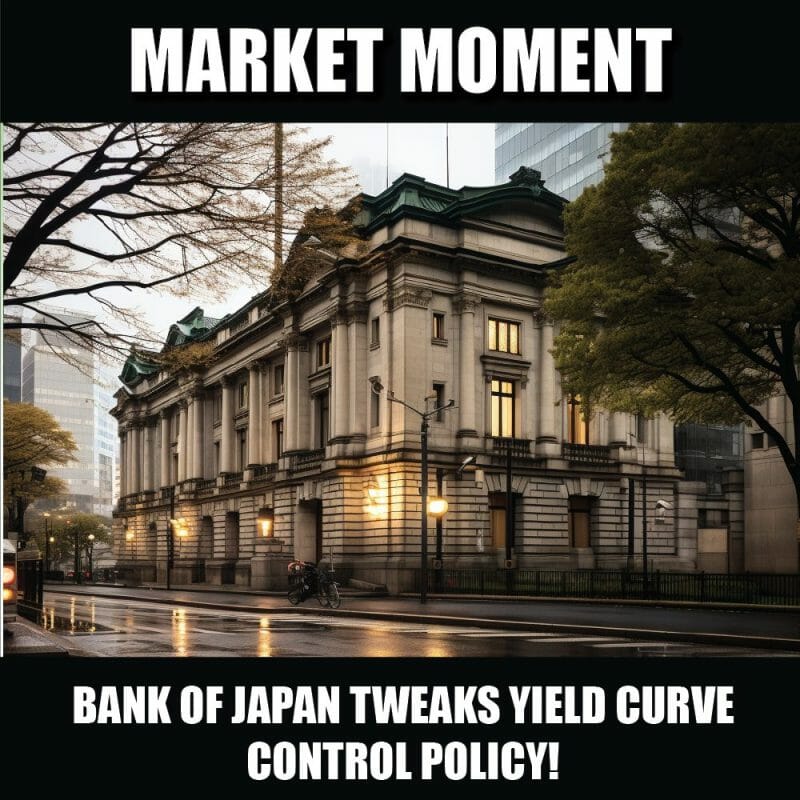Japan has been on investor’s radars recently. It all began with Warren Buffett, who has increased his holdings in Japanese trading houses, known as the Sogo Shosha. Whatever the Oracle of Omaha does tends to generate a lot of interest from institutions. And you cannot blame them. Buffett has quite the track record, some saying he is the best investor of all time. The Buffett entry has led to quite the bid in the Japanese Nikkei stock market which has yet to take out previous record all time highs set in 1989.
As readers know, I have been publishing articles on Japan since early 2022. I have warned investors that now is the time to keep an eye on the Bank of Japan as their policy movies will have astounding effects on the global financial markets and those households in the West with high debt.
As Western allied central banks have been increasing interest rates, Japan has kept rates at -0.1%. And it makes sense given Japan is one of the most indebted nations. Japan has monetized their debt, and higher interest rates would mean higher interest payments for the Japanese government to service the debt. At a time when inflation is rising and the Japanese Yen is declining with the nation exporting energy.
With the exit of former BoJ Governor Haruhiko Kuroda, a new governor, Kazuo Ueda, has taken the top job. With a new governor, investors have been anticipating some sort of change in Japan’s monetary policy. Ueda’s first BoJ meeting went off with no surprise. He said something along the lines of “the BoJ will take about 1 year to review current policy before deciding to make changes”. A lot of people saw this as the BoJ stalling and playing the long game until other central banks begin cutting rates due to recession.
However, it seems the BoJ is now preparing the Japanese market and financial markets for an eventual policy shift.
This week, the BoJ once again surprised markets by changing their yield curve control to 1%. They had a cap on 10 year Japanese Government Bonds (JGB’s) at 0.5%, but now yields will be able to move up to 1% before the BoJ jumps in to bring yields down.
Many are seeing this as the first step in a monetary policy shift.

For investors and traders, watch the Japanese 10 year yield, especially in relation to other debt markets.
If you recall why the Bank of Japan is important to you and world financial markets, I will recap:
Recall that Japan is the number 1 buyer of US debt. It is not China. Since interest rates have been low in Japan for decades, Japanese wealth has been looking overseas for yield. They have been buying up safe US and European debt. In a way, Japanese money has inadvertently done yield curve control for the US and Europe, keeping rates lower than they would be without Japanese buyers. Remember the inverse relationship between bond prices and yields: when bonds are bought, yields drop. When bonds are sold off, yields move higher.
But with the BoJ adjusting the yield on the 10 year JGB, and investors perceiving this as the first step to some sort of policy normalization, Japanese money may sell off US and European debt and return home. But interest rates aren’t high yet? Well inflation has been low in Japan for decades, and current inflation is from supply chain disruptions. We are not even seeing wages increase which would add inflationary pressures. The domestic Japanese investor may take this yield of near 1% and the safety of having money in the country rather than overseas.
Oh yea and one other major thing matters when you consider Japanese money returning home: the Japanese Yen. With the Yen being weak, it might make more sense buying Yen denominated assets than having to fork over more for US and European debt. Japanese savers could be bringing a big chunk of their savings back home and selling US and European debt. This will cause yields in the US and Europe to spike.
But would this happen? This is the big debate among analysts. Some say that some Japanese money will return home but not nearly in the large amount which would cause a major spike in US yields. It isn’t like the Japanese investor would sell off all of their US holdings. But some say you can make the case when it comes to the debt markets and yields and the weakening yen.
A spike in yields is troublesome. Stock markets would take a hit, and if yields rise too fast, central banks may need to intervene. This is why the Bank of Japan and any normalization of policy would impact the whole world and of course, financial markets.
In fact, some US analysts such as Kevin Hebner, global investment strategist at TD Epoch, told CNBC that the BoJ should move to a normal structure and let bond markets and equity markets do their work.
“It’s been an inappropriate policy for the last 20 years. Japan hasn’t had the same cyclical issues,” he noted. “And when you have zero interest rates, it creates all sorts of distortions and dislocations that I think are very harmful.”
Hebner said, “I think when we move to the new normal, there is a signal that longer term JGB yields are going to be significantly higher — not just 58 basis points, but say 125 to 150 basis points.”

How has the Yen responded? More weakness. On the USDJPY, the Yen saw some gains in July but it turns out to be just a retracement based on the last Fed statement. The USD is set to continue its uptrend against the Japanese Yen with a close above 145 confirming the next higher low.

The market which is hinting at more Yen weakness is the XAUJPY market. Gold made all new record highs against the Japanese Yen and now recent price action is undergoing the retest of the breakout. More record highs can be printed if buyers step in on the retest signaling more Yen weakness.
In summary, the BoJ still warrants your attention. There are uncertainties out there in terms of inflation, interest rates, recession and geopolitics. But the Bank of Japan and their normalization of policy is still under the radar.


Leave a Reply